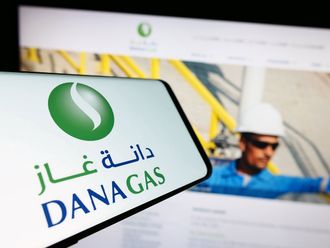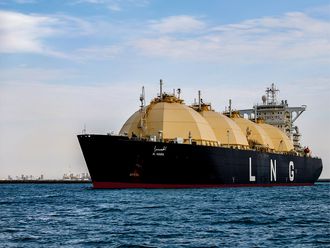Anchorage: The Trans-Alaska Pipeline System, the 1,287km network that shifts crude across the northernmost US state, has been shut down after a leak, forcing producers including BP Plc to suspend most of their local output. Prices may climb if the problem isn't fixed, according to one analyst.
The system was closed from about 8:50am Alaska time on Saturday after a leak at Pump Station 1, operator Alyeska Pipeline Service Co said in an initial statement. There were no injuries and no "apparent impacts to the environment", Alyeska said in a second statement, without stating when flow would be restarted. Federal and state staff are helping with the response.
BP is cutting crude output on Alaska's North Slope by 95 per cent after Alyeska reported the leak, according to Steve Rinehart, a spokesman in Anchorage. BP's North Slope production is about 410,000 barrels a day.
Supply problems
The system carries about 15 per cent of domestic US oil output, according to Alyeska's website. After the shutdown, producers have been pro-rated to five per cent of normal output, according to the operator, which is owned by the producers, including BP. Crews began recovering oil about seven hours after the shutdown, the second Alyeska statement said.
"If there's no resolution by tomorrow, we may see prices heading towards $90 a barrel or higher," said Gavin Wendt, founding director at Sydney-based MineLife Pty Ltd. "The market is very susceptible to supply-side problems."
Alyeska said in its second statement: "Engineers are assessing the situation and developing a plan to safely restart the pipeline."
The leak appeared to be from a section of piping adjacent to a booster-pump building that is encased in concrete, the first statement said.
The Alaskan pipeline system starts in Prudhoe Bay on the North Slope and runs to Valdez, the northernmost ice-free port in North America, according to Alyeska's website. Since the system began operating in 1977, Alyeska has shipped more than 16 billion barrels of oil, it said.
BP owns 26 per cent of Prudhoe Bay and neighbouring fields in Alaska with ExxonMobil Corp, ConocoPhillips and Chevron Corp. The Prudhoe Bay field, the largest in the US, came online in 1977 and can produce about 400,000 barrels a day.
Production halted
Canadian Natural Resources Ltd, Canada's second-biggest energy company by market value, shut down part of its operations after an explosion at its oil-sands processing operations in northern Alberta on Friday.
The explosion reduces the Calgary-based company's oil production by about 15 per cent, according to Philip Skolnick, an analyst at Canaccord Genuity Corp.
The accident will hurt the company's pretax cash flow by Canadian $885 million (Dh3.2 billion) if operations at the plant are halted for six months, he added.
"It all depends on how much damage there is at the plant," said Skolnick, who has a "buy" rating on the stock, and owns none. "Freezing temperatures and ice may slow repairs if they used water to extinguish the fire."
A stop-work order was issued by Alberta's Occupational Health and Safety agency and access to the site is restricted, Canadian Natural said on its website.
Oil production has been suspended and the company hasn't determined when production will resume. The company made no estimate on the costs.
The fire was extinguished late yesterday and an investigation is under way, said Tom Neufeld, a spokesman for the Alberta Energy Resources Conservation Board, which oversees energy operations in the province. Crude oil rose yesterday as shipments from Canada, the biggest supplier to the US, are curtailed by the accident. Canadian Natural processes as much as 110,000 barrels a day at the plant.












